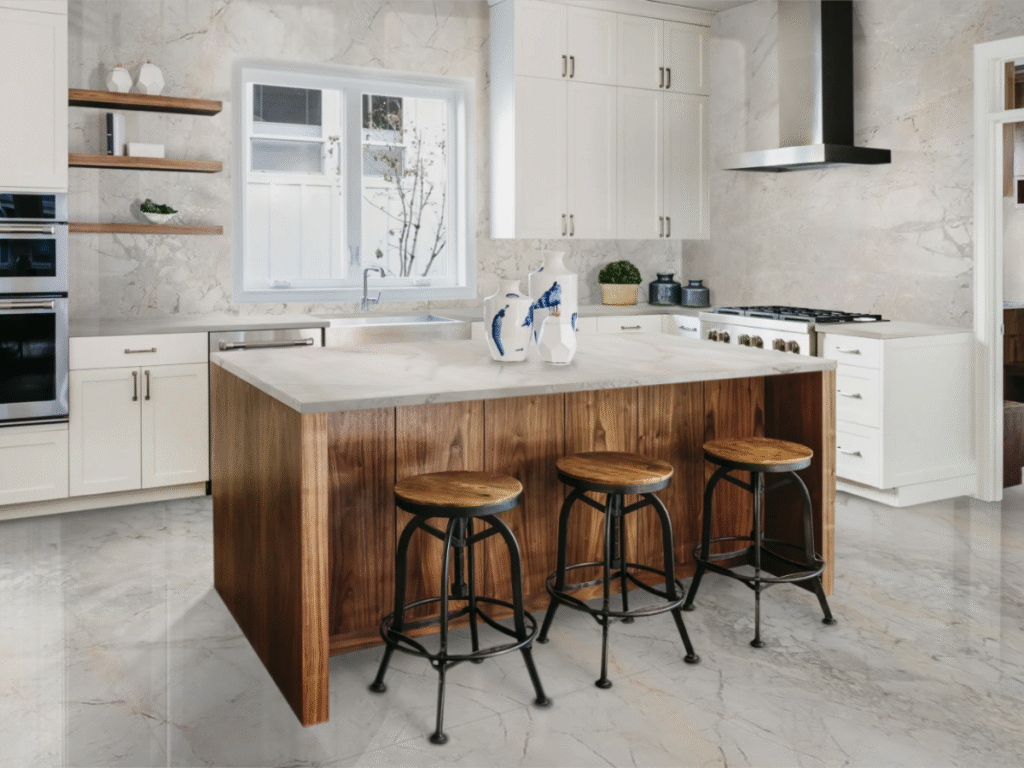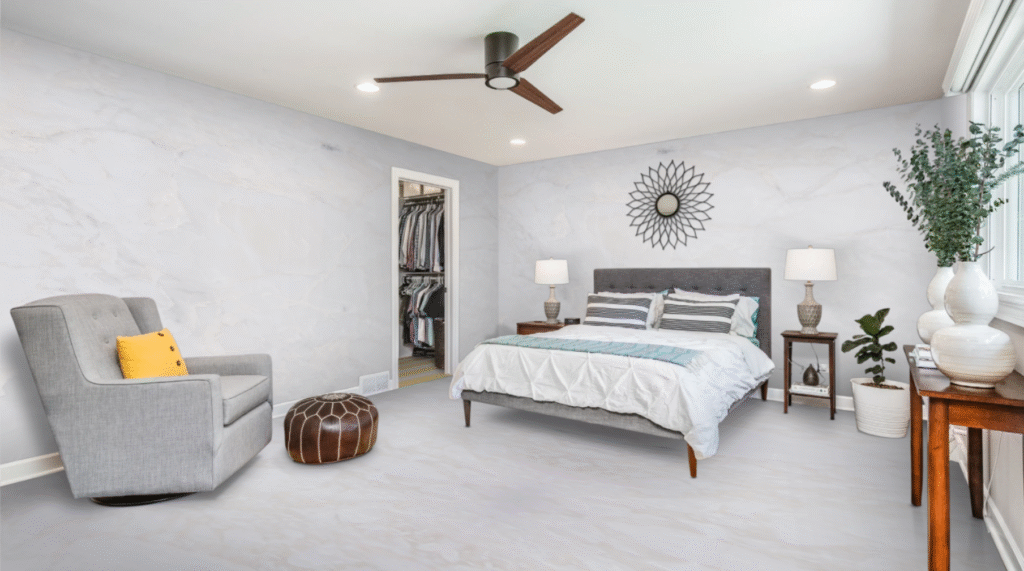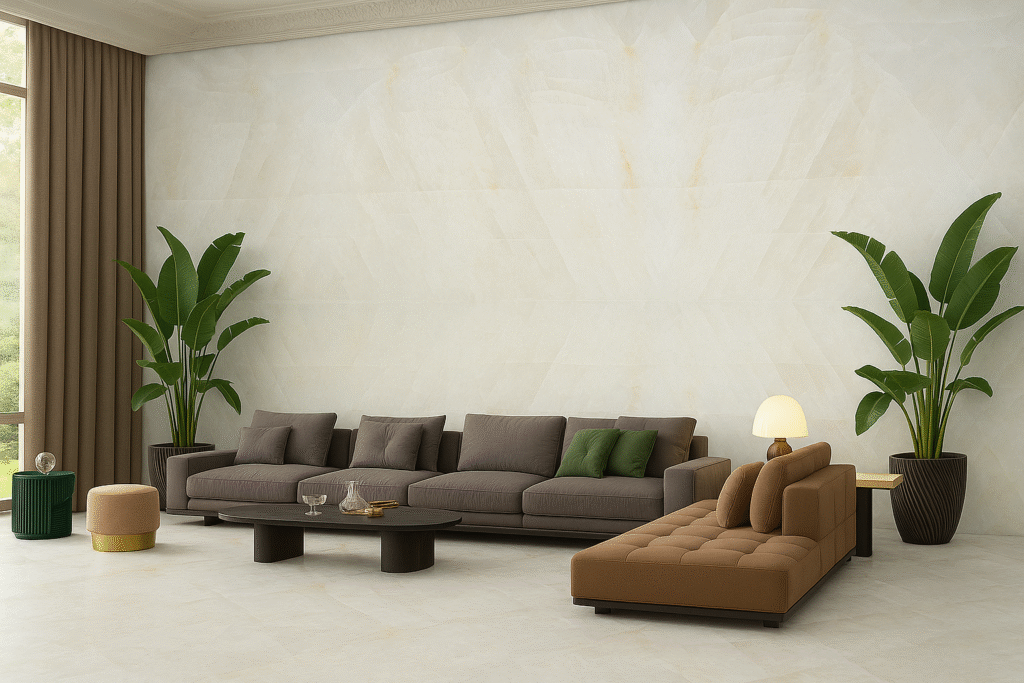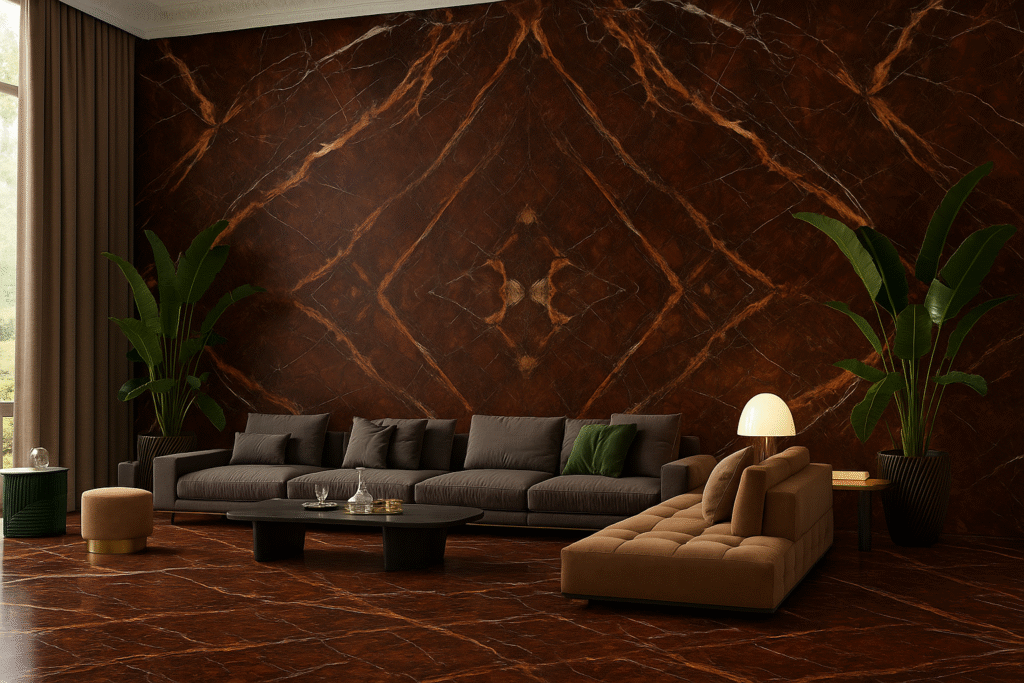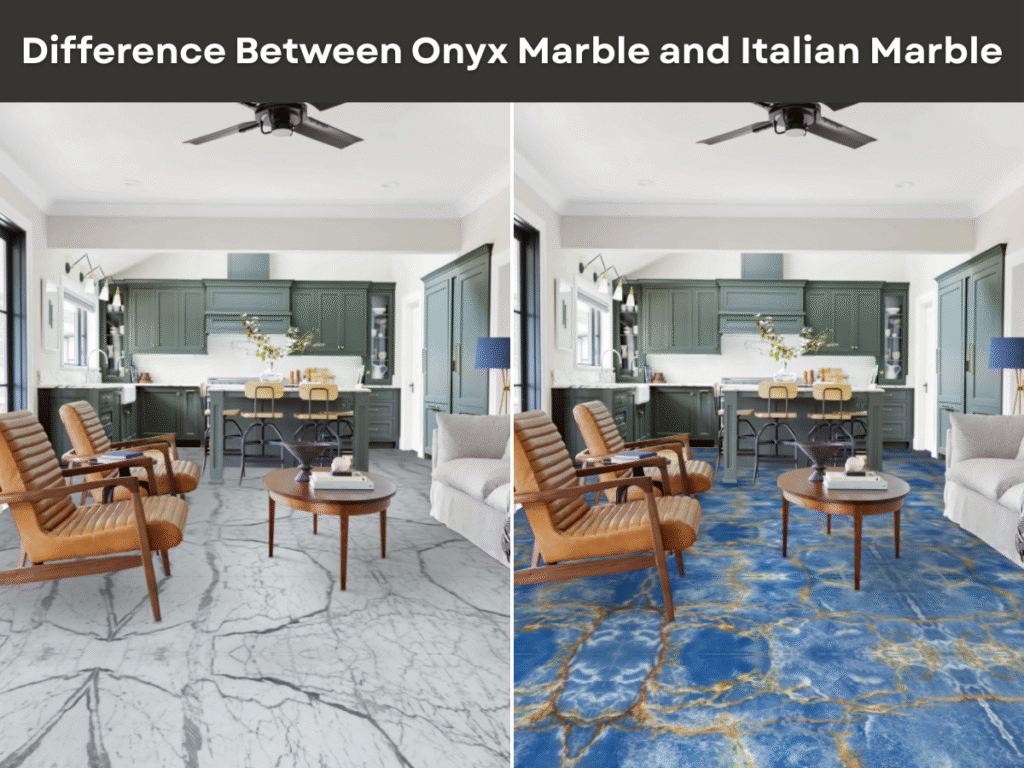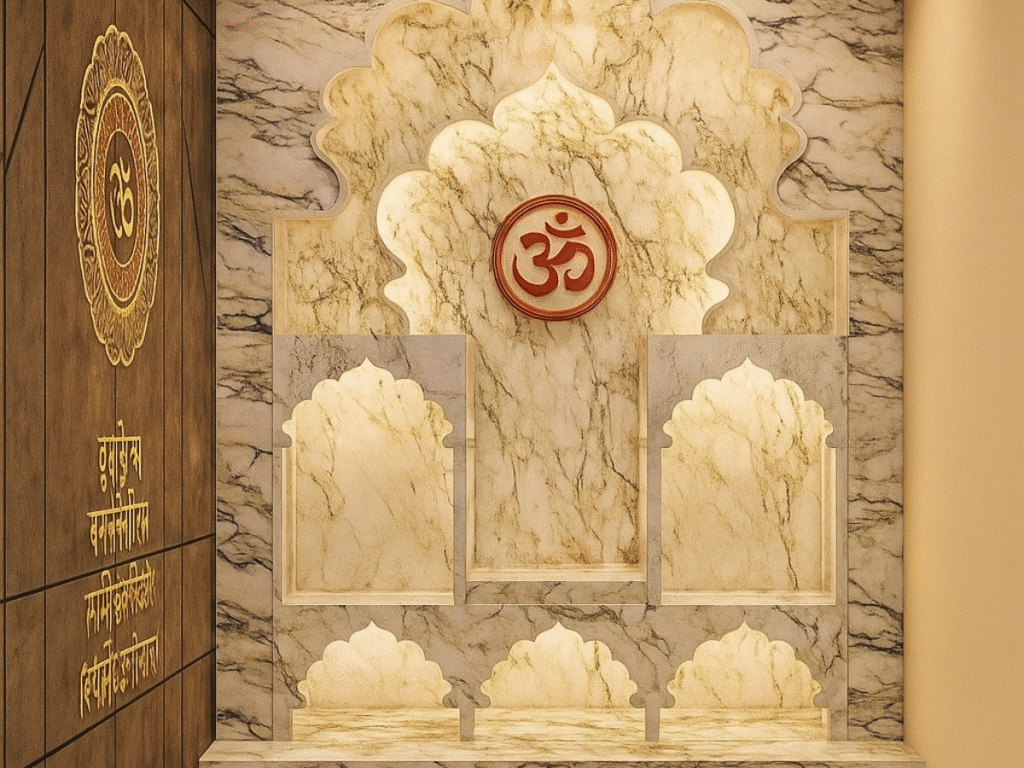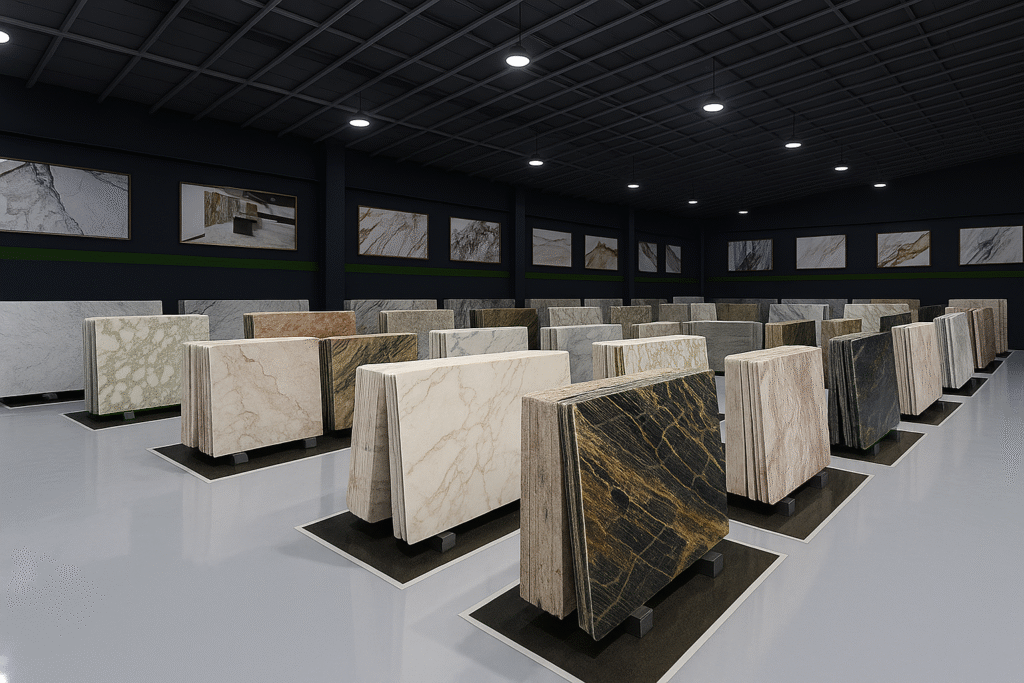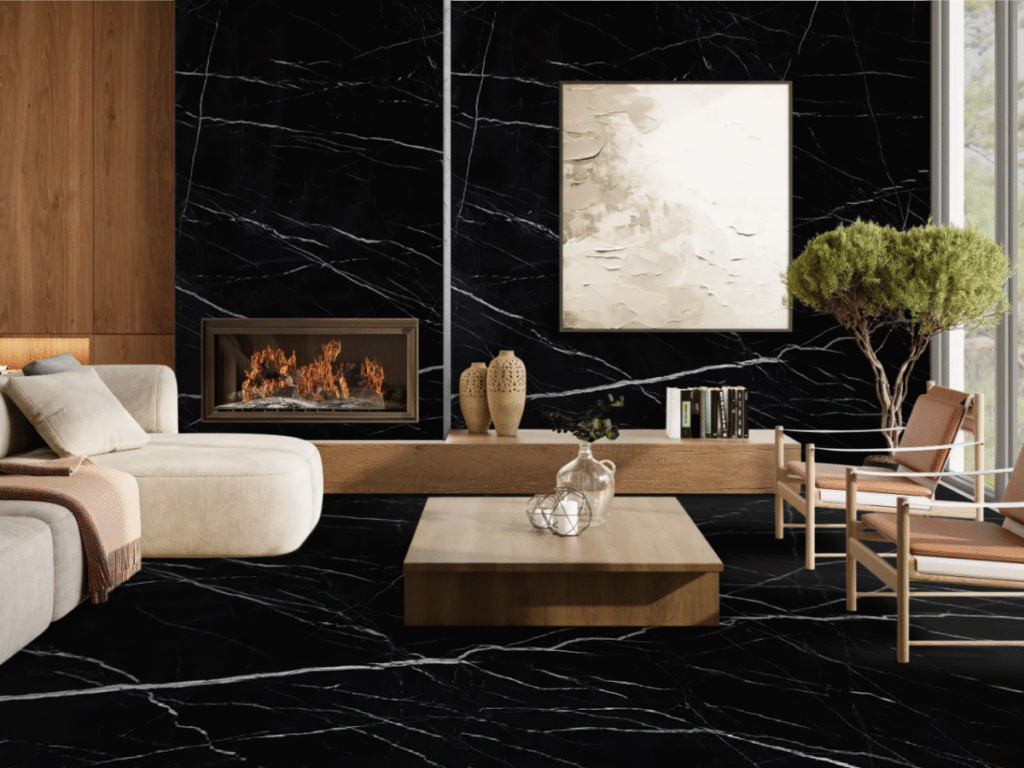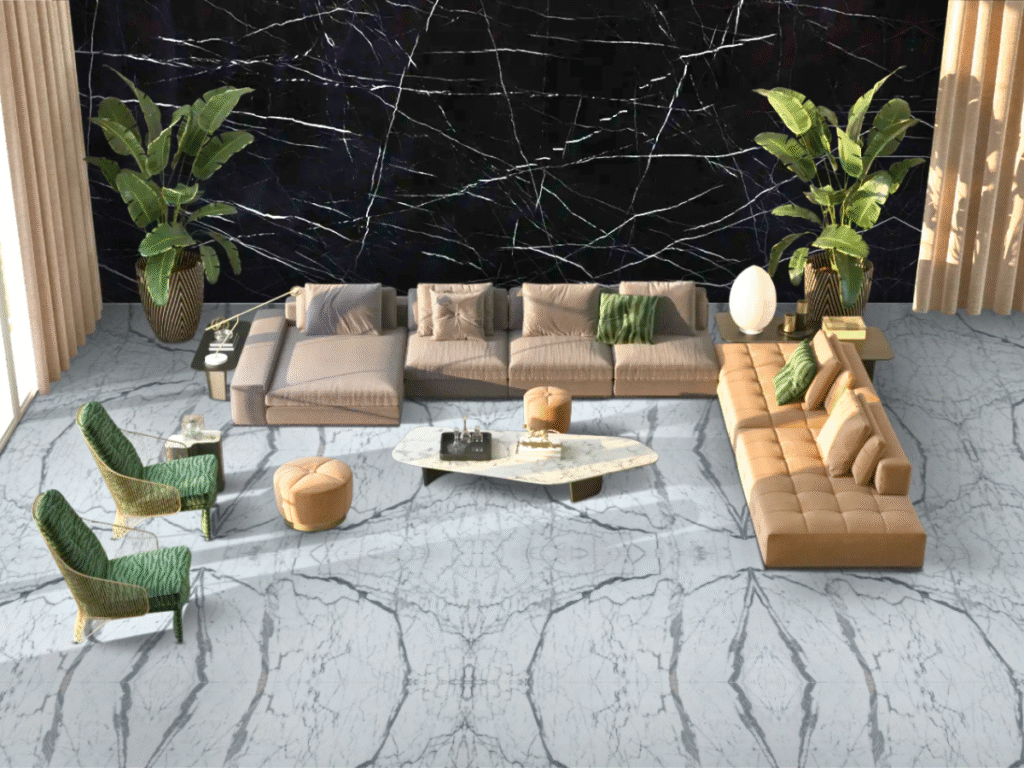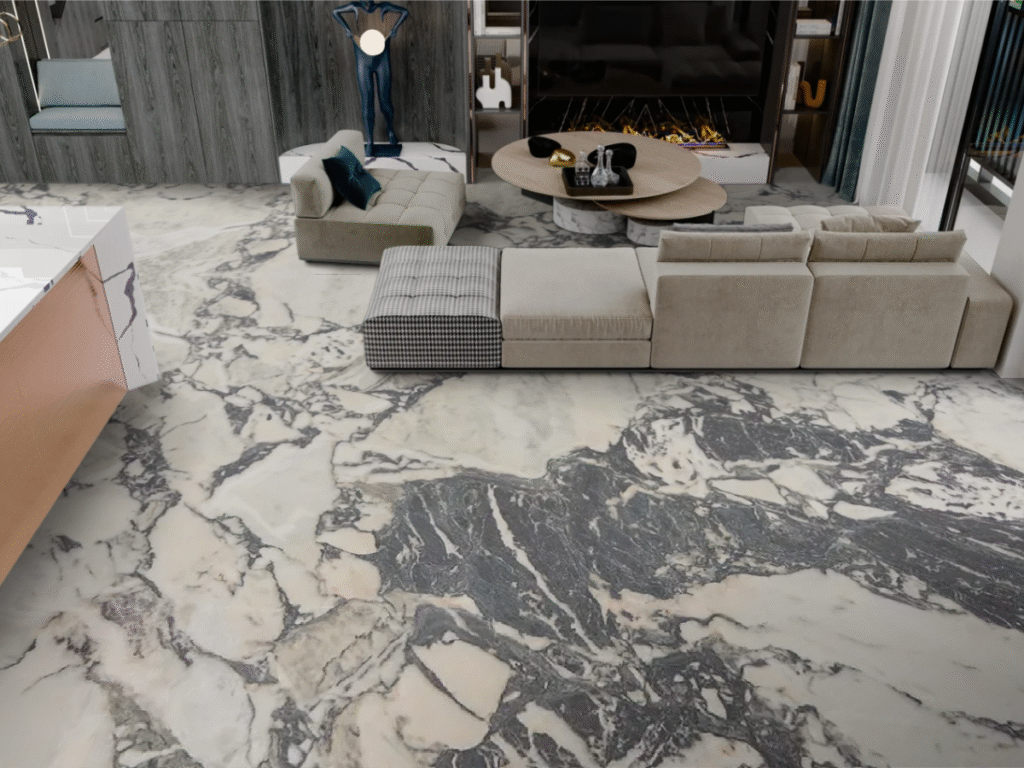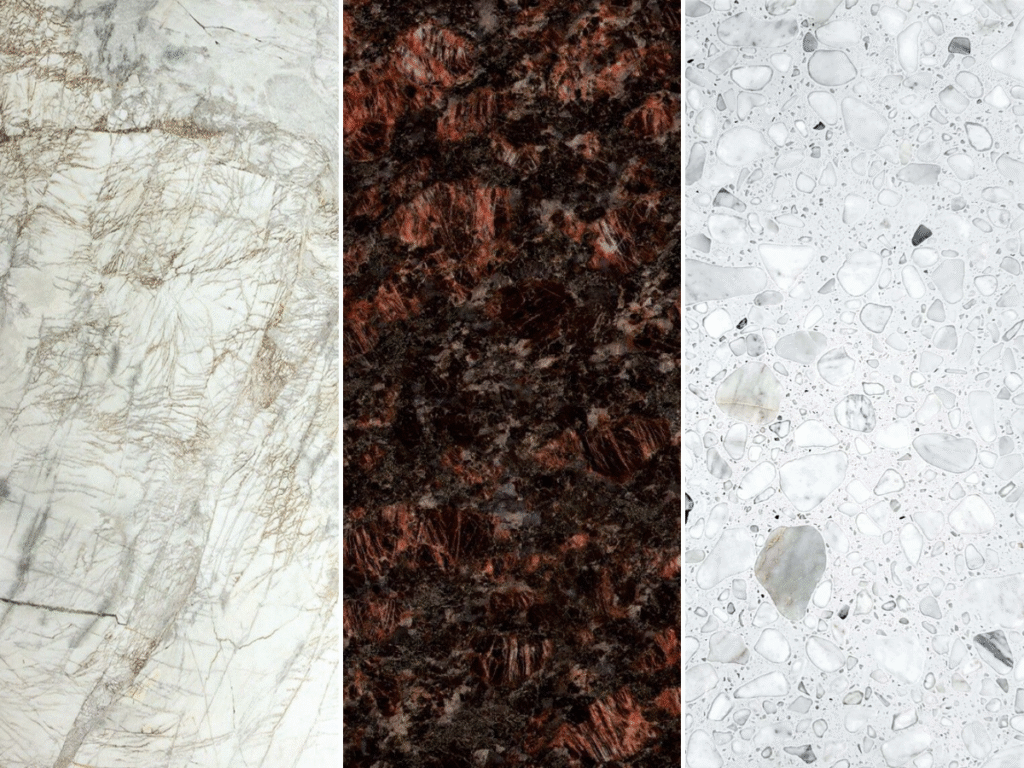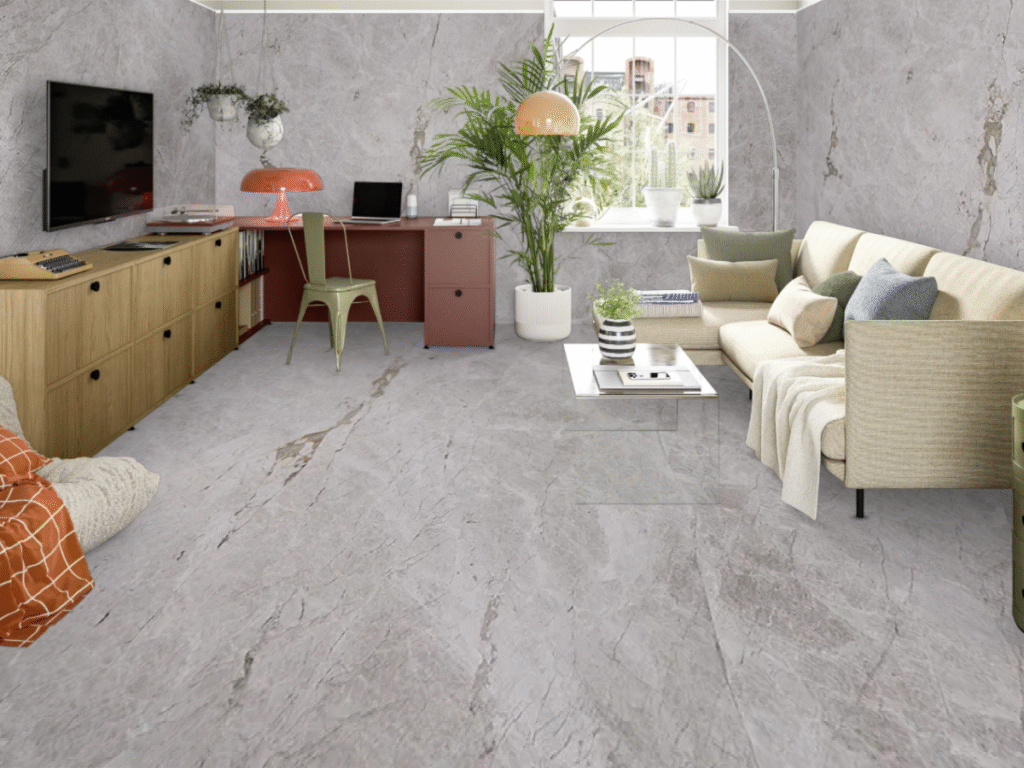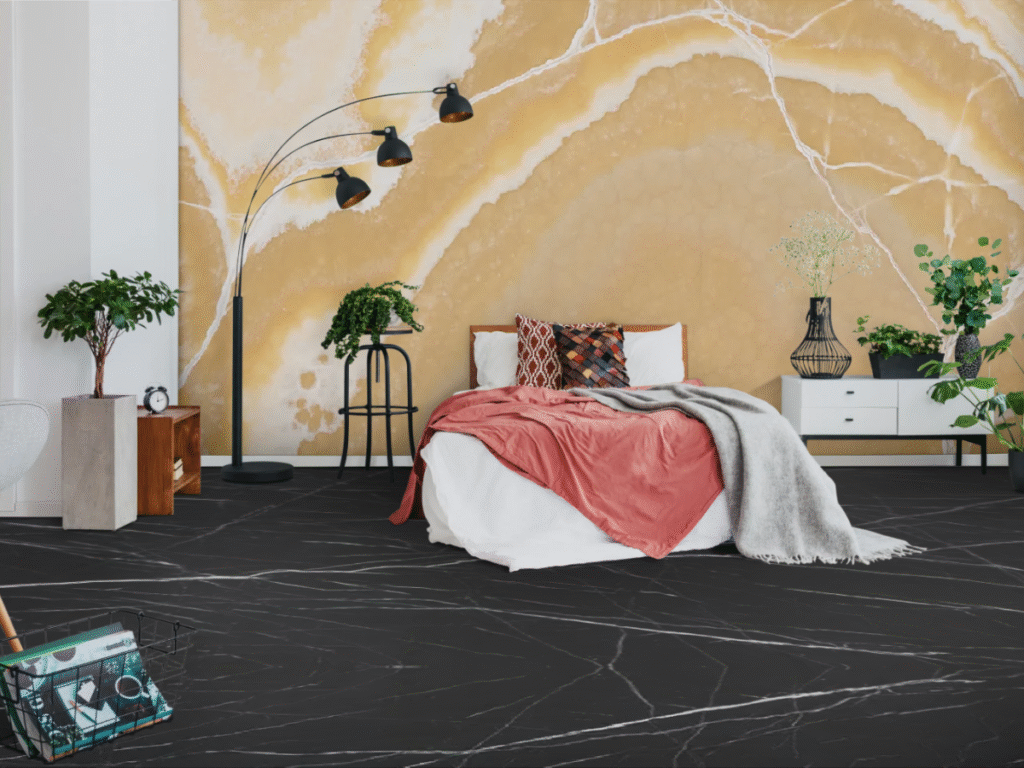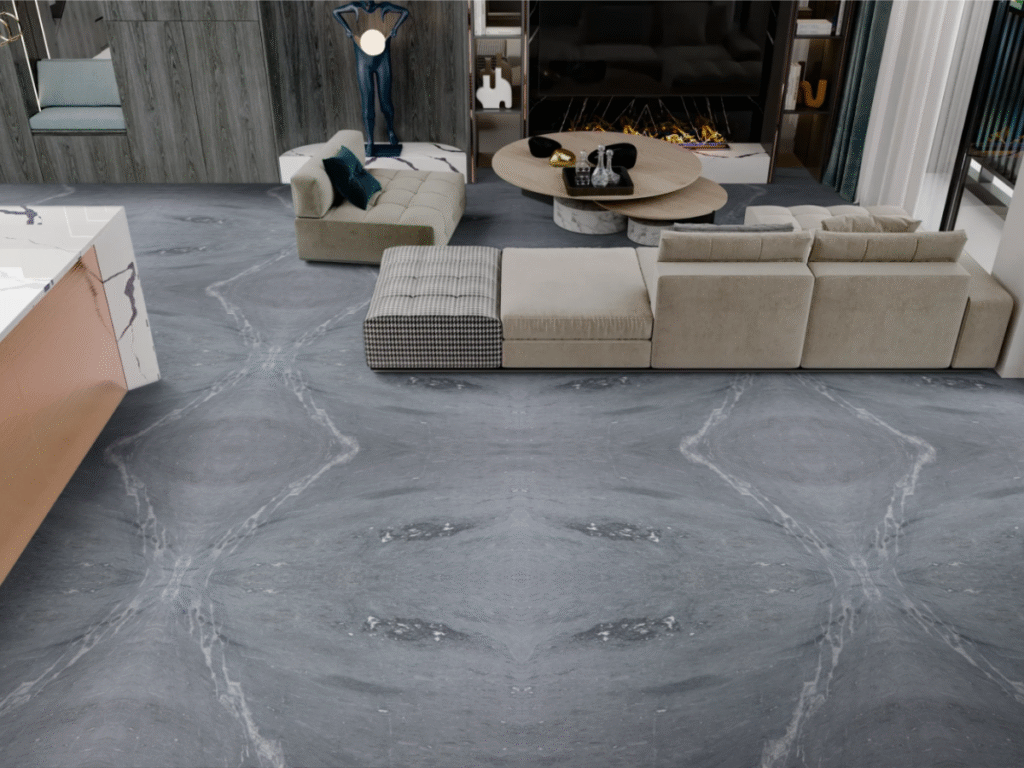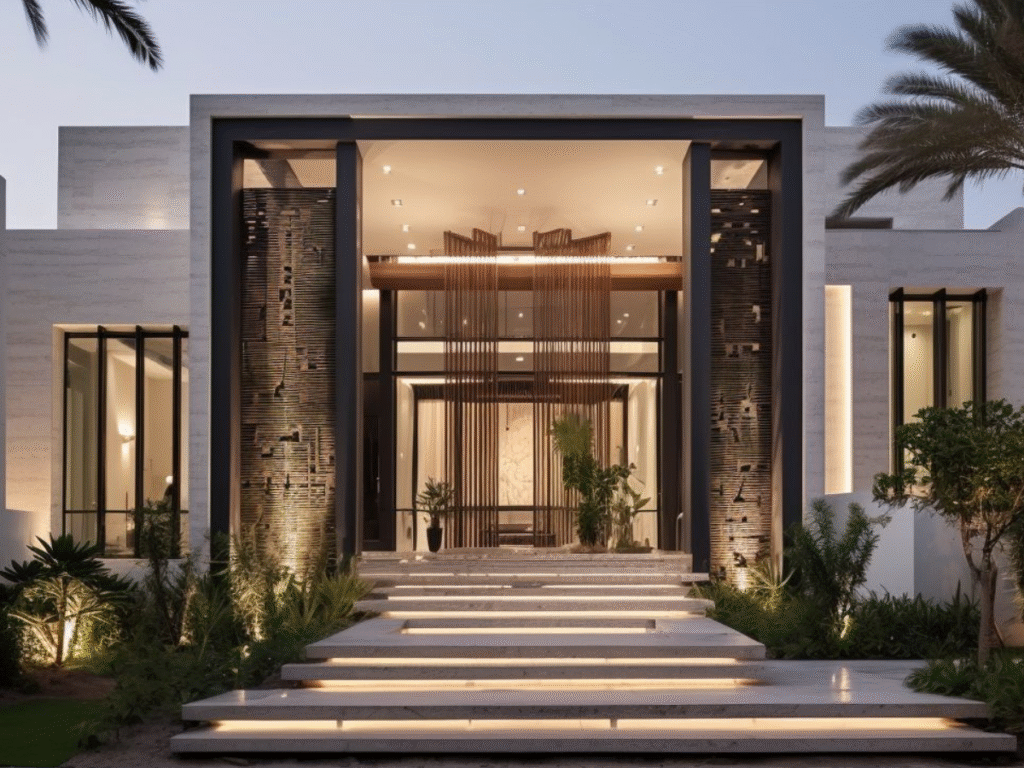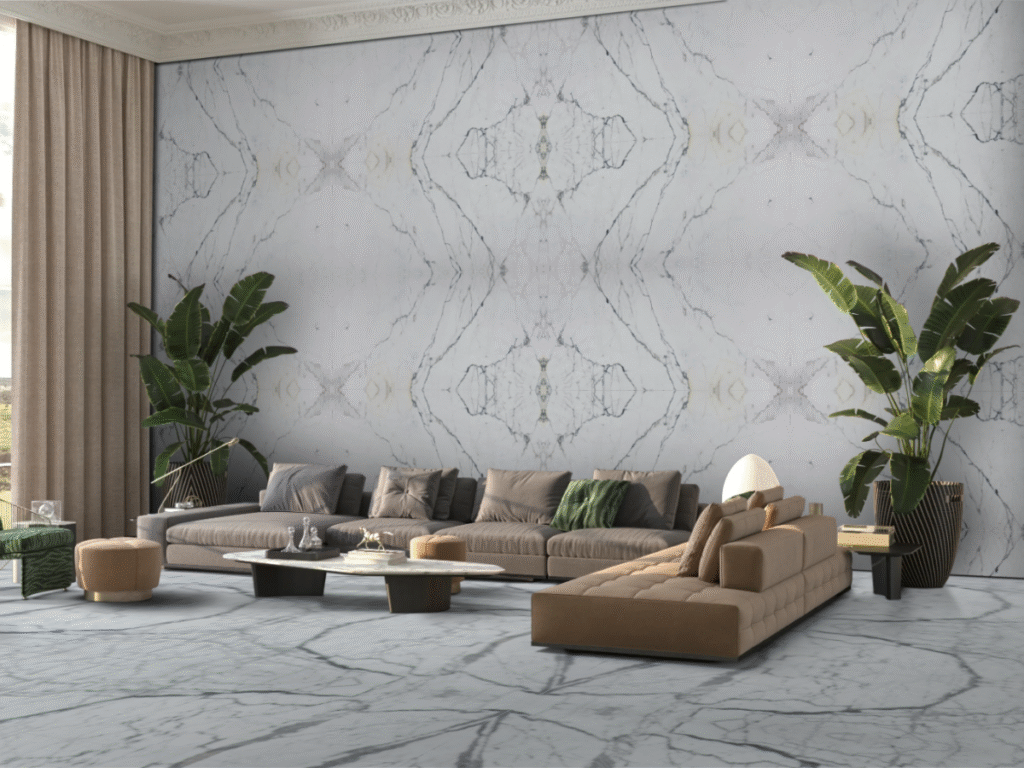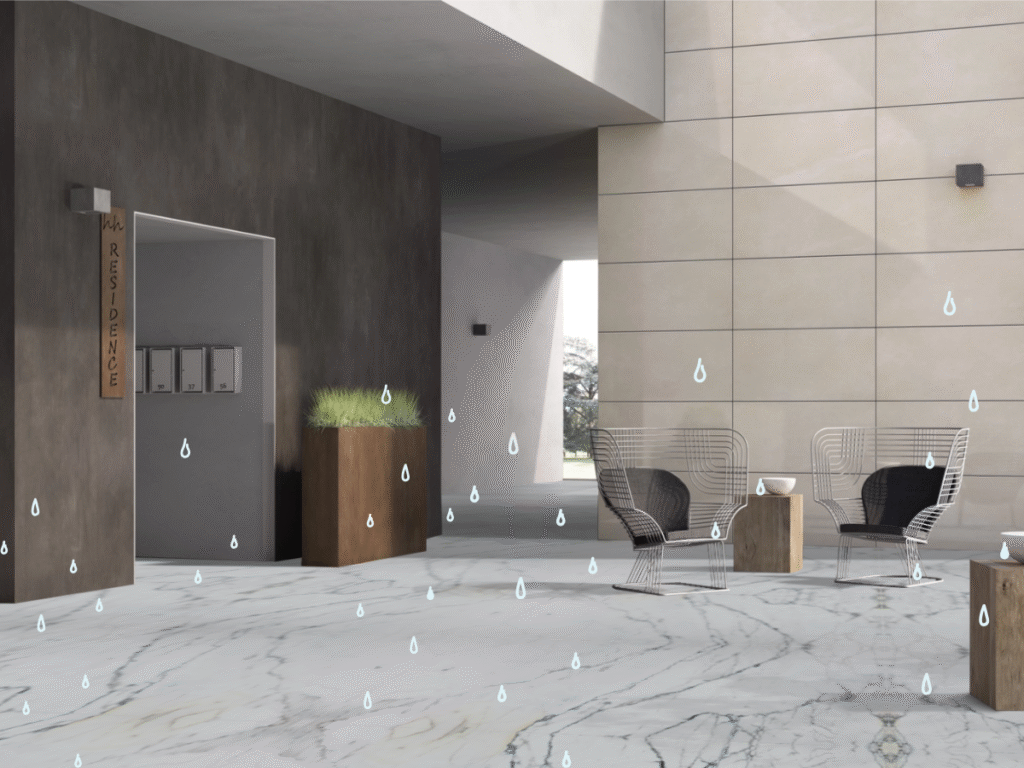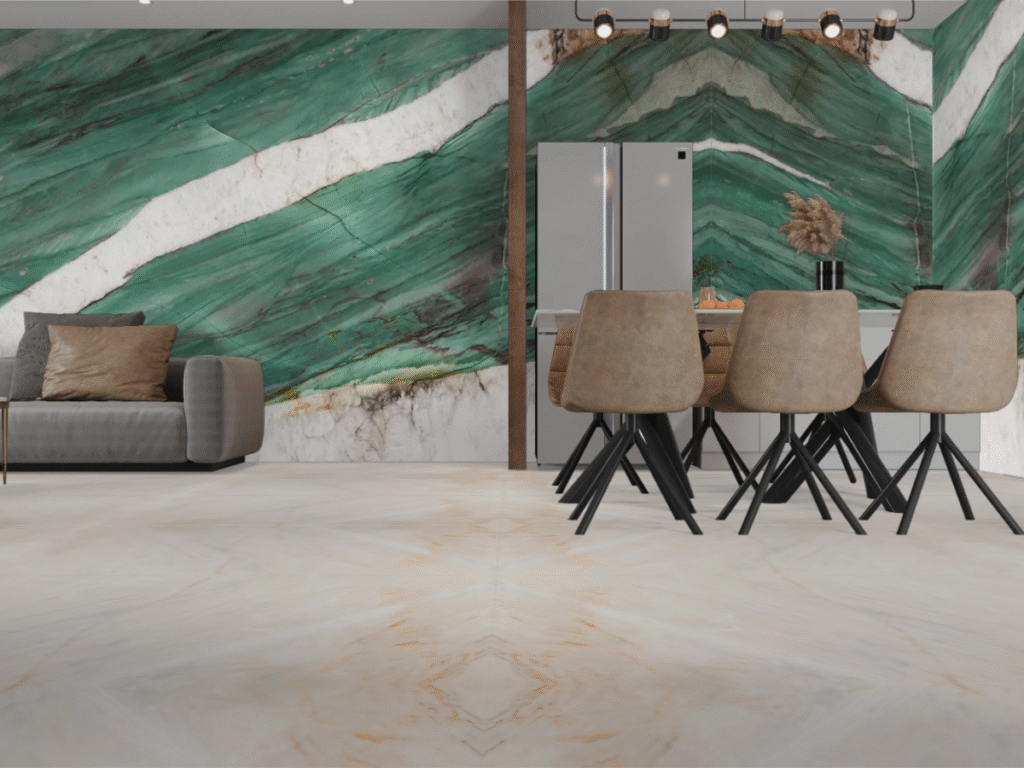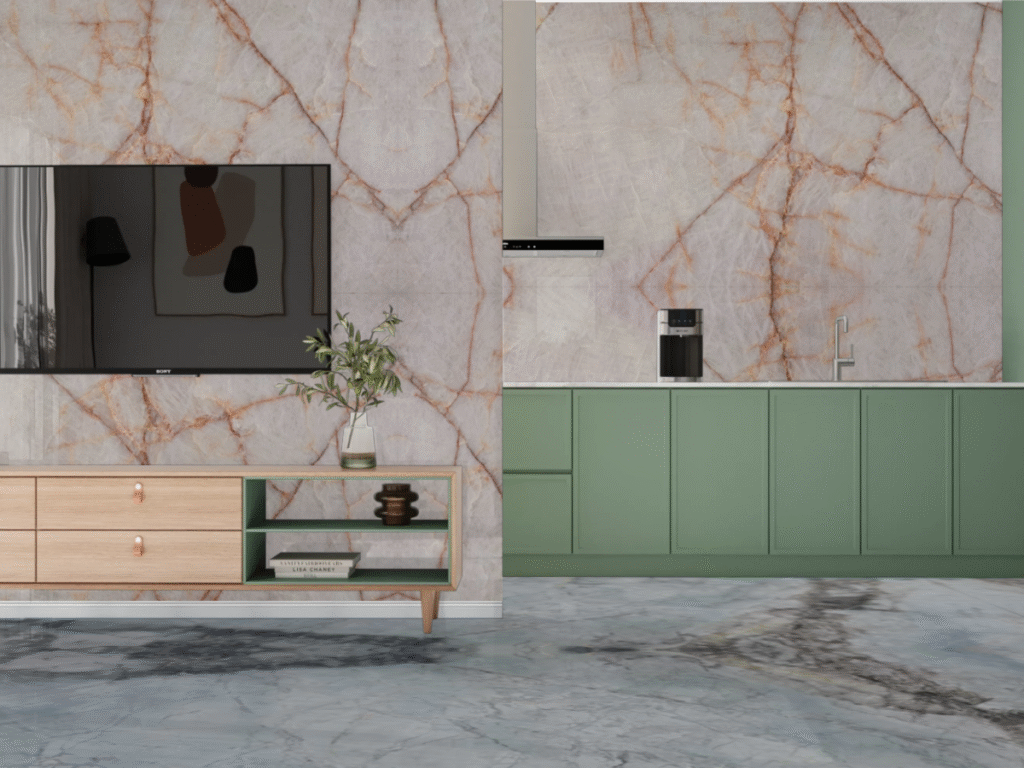The Indian kitchen today is not just a place to cook; it’s a part of the home where design, function, and family come together.
With so many new materials like quartz, granite, tiles, and engineered stone entering the market, many homeowners are asking:
“Is marble still a smart choice for kitchen countertops and flooring in India?”
We spoke to leading architects, interior designers, and kitchen planners to find the real answer. And the results may surprise you.
In this blog, we share what Indian architects really think about using marble in modern kitchens, the good, the bad, and what to choose if you want beauty and practicality.
What Makes Marble So Popular in Indian Kitchens?

Marble has been used in Indian homes for centuries. Even today, it’s a top choice for premium kitchen interiors.
Here’s why marble is still loved:
1. Natural Beauty That Never Goes Out of Style
Every marble slab is different, with unique colours, textures, and veins. Architects say it adds a natural elegance to kitchens that artificial materials can’t match.
2. Keeps Kitchen Cool
India has a hot climate, and marble naturally stays cool. This is especially helpful in traditional Indian kitchens where cooking generates a lot of heat.
3. Adds Value to Your Home
Marble countertops and flooring instantly give your kitchen a premium look. Real estate experts say homes with marble kitchens often have higher resale value.
4. Wide Range of Colours and Types
From white Italian marble like Statuario and Dover White to Indian classics like Makrana and Udaipur Green, there’s a marble for every kitchen design.
But Is Marble Practical for the Indian Kitchen Lifestyle?

Let’s be honest, Indian cooking involves oil, spices, turmeric, tea, and sometimes heavy utensils. So, is marble durable enough for that?
Here’s what architects say:
1. Marble Needs Care — But Not as Much as You Think
Many people believe marble is too soft or delicate. That’s not true if you choose the right marble and seal it properly.
Top architects suggest using pre-polished, sealed marble slabs from trusted suppliers like RMS Stonex to avoid common problems like stains or cracks.
2. Avoid Acidic Cleaners
Just don’t use strong chemicals or acids (like Harpic or vinegar) on marble. Use pH-neutral cleaners or mild soap with warm water. It’s that simple.
3. Matte Finishes Are Safer for Kitchens
High-gloss marble looks beautiful but can be slippery. Architects now recommend matte or leather finishes for kitchen flooring to reduce the chance of slips.
4. Regular Maintenance Keeps It Beautiful for Years
Cleaning marble daily with a soft cloth and resealing it once in a while can keep it looking new for decades.
What Do Top Indian Architects Recommend?
We asked a few well-known architects working in Bengaluru, Mumbai, Jaipur, and Delhi.
Here’s a summary of what they told us:
- “We still use marble in luxury kitchens, especially for countertops and wall cladding. No other material feels this premium.”
– Architect N. Suresh, Bengaluru - “For families who cook every day, we suggest durable marbles like Michelangelo or imported beige stones. With sealing, they perform very well.”
– Interior Designer Ritu Jain, Delhi NCR - “White marble is timeless. In kitchens, we now pair it with granite near the stove and marble for the rest of the counter and island.”
– Architect Parag Mehta, Mumbai
Best Types of Marble for Indian Kitchens

Here’s a shortlist of marble architects recommend for kitchen countertops and floors:
| Statuario Marble | Countertops, walls | Pure white with bold veins, high-end look |
| Makrana White Marble | Flooring, countertops | Indian classic, long-lasting, affordable |
| Dover White Marble | Kitchen island, backsplash | Soft white with elegance, less maintenance |
| Michelangelo Marble | Heavy-use countertops | Strong, durable, premium Italian marble |
| Onyx Marble (Green/White) | Wall cladding, light zones | Decorative, semi-translucent, very unique |
| Travertine Marble | Flooring | Non-slippery, matte finish, rustic feel |
Tips for Using Marble Safely in Your Kitchen
- Seal all marble surfaces at the time of installation and reseal them every 6 to 12 months.
- Wipe spills quickly, especially tea, turmeric, and lemon juice.
- Use coasters and trays to avoid direct contact with hot utensils.
- Avoid dragging heavy pots directly on marble to prevent scratches.
- Use a cutting board instead of cutting directly on the marble surface.
Marble vs. Other Kitchen Materials: Quick Comparison
| Feature | Marble | Granite | Quartz | Tiles |
|---|---|---|---|---|
| Looks Premium | ✅ Yes | ✅ Yes | ✅ Yes | ❌ Limited Design |
| Natural Material | ✅ Yes | ✅ Yes | ❌ No | ❌ No |
| Heat Resistance | ✅ Good | ✅ Excellent | ✅ Good | ✅ Good |
| Stain Resistance | ⚠️ Needs sealing | ✅ Yes | ✅ Yes | ✅ Yes |
| Cost | 💰 Mid to High | 💰 Mid to High | 💰 High | 💰 Low to Mid |
| Easy to Repair | ✅ Yes | ⚠️ Difficult | ❌ Not possible | ✅ Yes |
Why Choose RMS Stonex for Kitchen Marble?
- We offer pre-sealed, premium-quality marble slabs ready for kitchen use.
- We supply to top architects, luxury homes, builders, and developers in India.
- Our marbles are calibrated for countertop and flooring sizes — no extra cutting cost.
- Based in Kishangarh, Rajasthan – the Marble Capital of India.
- We provide full-service support: selection, packing, loading, transport, and layout advice.
Marble Still Wins – If You Use It the Right Way
Yes, marble is still one of the best materials for Indian kitchens — not just for its looks but for its cooling, lasting, and premium qualities.
Just make sure you choose the right marble type, install it professionally, and maintain it with care.
If you’re planning a kitchen upgrade or new construction, the team at RMS Stonex is here to help.
We’ll guide you through the entire process – from choosing the right marble to delivery and layout planning.
👉 Visit our showroom in Kishangarh or call us at +91 9929546645 now to get started.
FAQs
Yes. With proper sealing and care, marble works beautifully in Indian kitchens and adds a premium look.
Makrana White, Travertine, and Beige Marble are great for kitchen flooring due to their strength and slip-resistant finishes.
Wipe spills quickly, avoid acids, use mild soap, and reseal every 6 to 12 months.
Yes. Many architects combine granite (near cooktops) and marble (for islands or cladding) to get the best of both.
Yes. We supply and deliver to all major cities, including Delhi, Mumbai, Hyderabad, Bengaluru, and Ahmedabad.

